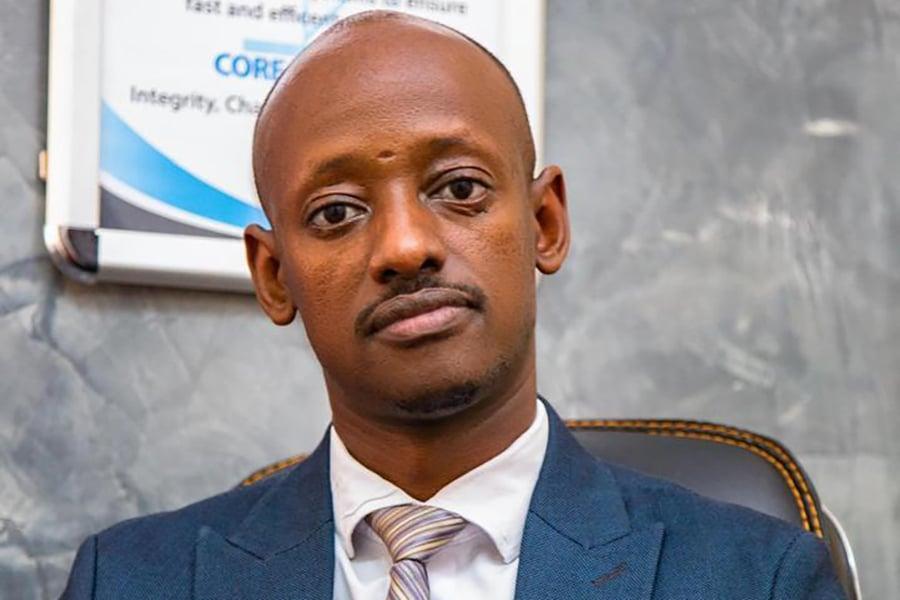Africa-Press – Uganda. Not long ago, I was seated next to a parent in a long bank queue along Kampala Road. I was there for a money transfer, and he was there to pay for his daughter in Grade 8. I glanced at the figure on the deposit slip—Shs9.2 million.
I evoked a conversation, “nowadays, school fees is quite high”. He sighed and muttered, “This is just for one term.” Then he added, perhaps to justify it to himself more than to me, “But it’s an international school. Cambridge syllabus. She’ll be ahead of the others.”
Will she, though? And is it worth it?
Let’s talk, heart to heart. Ugandan parents, especially those in the middle class, are under immense pressure to “give their children the best.” And for many, that has translated into chasing international education.
Cambridge here, IB there, American curriculum with fancy accents and cafeteria menus that sound like they came out of a cookbook in Manhattan. We say it’s for the child’s future, and often it is. But in truth, sometimes it’s also for our image—how we’re perceived at PTA meetings, in family WhatsApp groups, or during Sunday after-service chats.
Here’s the part we don’t always say out loud: some parents are stretching beyond their means, and yes, even borrowing, just to keep up with these expectations. Quiet SACCO loans. Salary advances. Short-term facilities. A few even dip into money meant for investment or emergencies, just to say, “My child goes to…,” fill in the elite school of the moment.
Let’s look at the numbers. International schools in Kampala charge anywhere from Shs5 million to Shs15 million per term. Multiply that over three terms, and you’re staring at Shs45 million or more a year.
Over 15 years—from nursery to S.6—that’s over Shs675 million for a single child. Now consider that some of these children, despite the global curricula, still return to Uganda to attend local universities—Makerere, UCU, KIU—studying alongside peers who went through Uganda’s traditional education system at a fraction of the cost.
Even for those who go abroad for university, many still come back to compete for the same jobs in Kampala. After spending Shs700 million to send your child to the UK or Canada, you’re still attending their graduation only to hear they’ve applied for a job paying Shs1.8 million per month—if they’re lucky.
Let’s put it in perspective. If you invested that same Shs675 million in a decent unit trust or real estate venture yielding a modest 10% annually, by the time your child turns 18, you’d have over Shs1.4 billion.
That’s not just money—that’s capital that could launch a business, buy an apartment, or provide for siblings. But instead, we’re spending it all upfront, betting it will translate to a competitive edge in a world where results—not resumes—win the race.
Now, this isn’t to knock international schools. Exposure matters. They teach creativity, confidence, collaboration. They emphasize research and independence—skills that are crucial. But we must ask: are we buying these benefits wisely, or are we draining our families emotionally and financially just to feel secure?
Because there are Ugandan schools doing just fine. Traditional schools like King’s College Budo, Gayaza High, Namagunga, Kisubi, Namilyango, Ntare—they’ve educated presidents, scientists, CEOs. They charge Shs1.5m to 3.5m per term, and they teach discipline, grit, and resilience—three things the world still rewards.
Private schools like Greenhill, Vienna College, and Seeta High are also producing top grades and well-rounded learners, often at a fifth of the cost.
And no, your child doesn’t need to go to New York to be exposed. Exposure can come through mentorship, reading, internships, volunteer work, and short overseas trips—not just termly fees. You can use the savings to invest in your child’s curiosity, character, and skills.
We must also reflect on what this pressure is doing to our children. Some are carrying burdens they don’t understand. They hear their parents whisper about bank loans, feel the tension around school shopping season, and grow up believing their worth is tied to the size of their school’s fees.
We need to ask ourselves: are we preparing them for life or for show? Are we raising children who know how to adapt and build, or children who know how to present but can’t perform?
It’s not about shaming those who choose the international route. Some can afford it comfortably, and if you can, that’s fine. But if you’re sacrificing every coin, borrowing, or postponing investments just to send your child to a fancy school while your roof leaks, your business idea gathers dust, or your second-born gets less—it’s time to pause.
Let’s redefine what it means to give your child “the best.” It doesn’t have to be the most expensive. Sometimes, the best is stability. Emotional safety. Opportunity to grow without pressure. A parent who’s not always anxious about fees. A home where wisdom is valued over appearance.
Because the truth is, no school—not even one with a swimming pool on the roof and robotics in Primary Three—can substitute a present, thoughtful, and financially wise parent.
So before the next term begins, take a breath. Revisit your why. Re-evaluate your capacity. Reimagine what success really looks like for your child—and for you.
See you next week—hopefully not just schooling smart, but spending smarter too.
Jonan Kandanwaho is the President of the Money Lenders Association of Uganda.
Source: Nilepost News
For More News And Analysis About Uganda Follow Africa-Press






